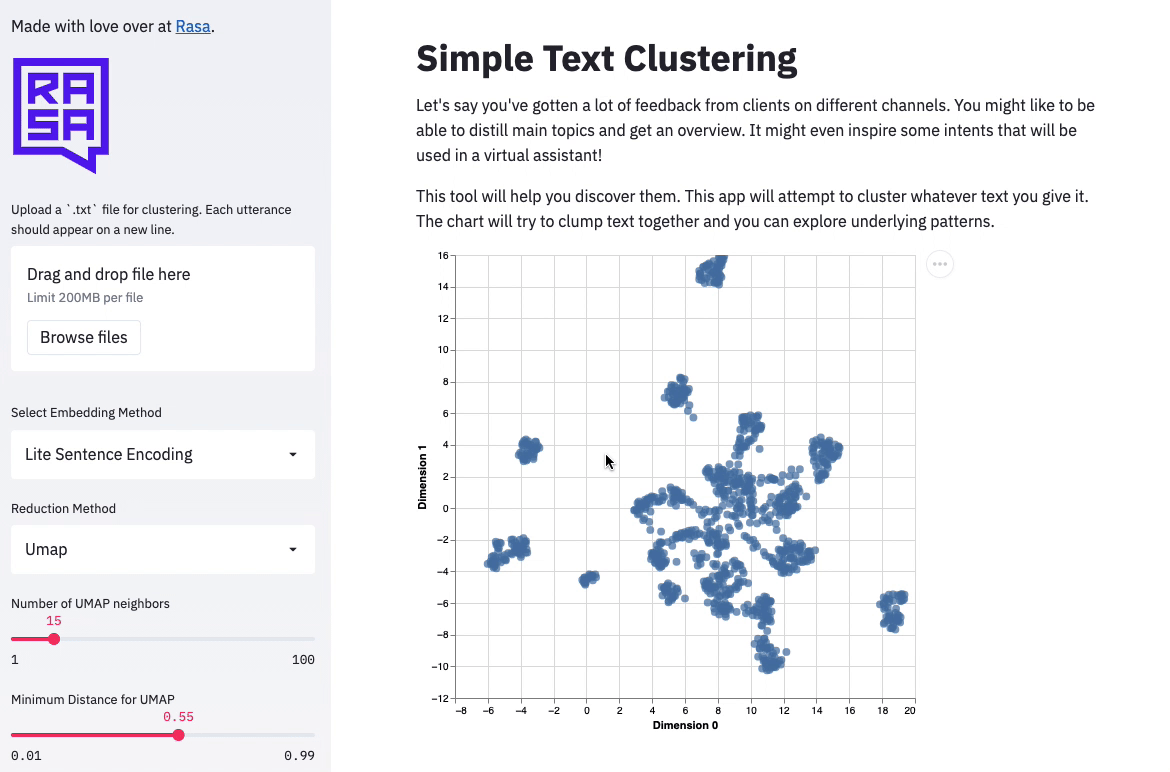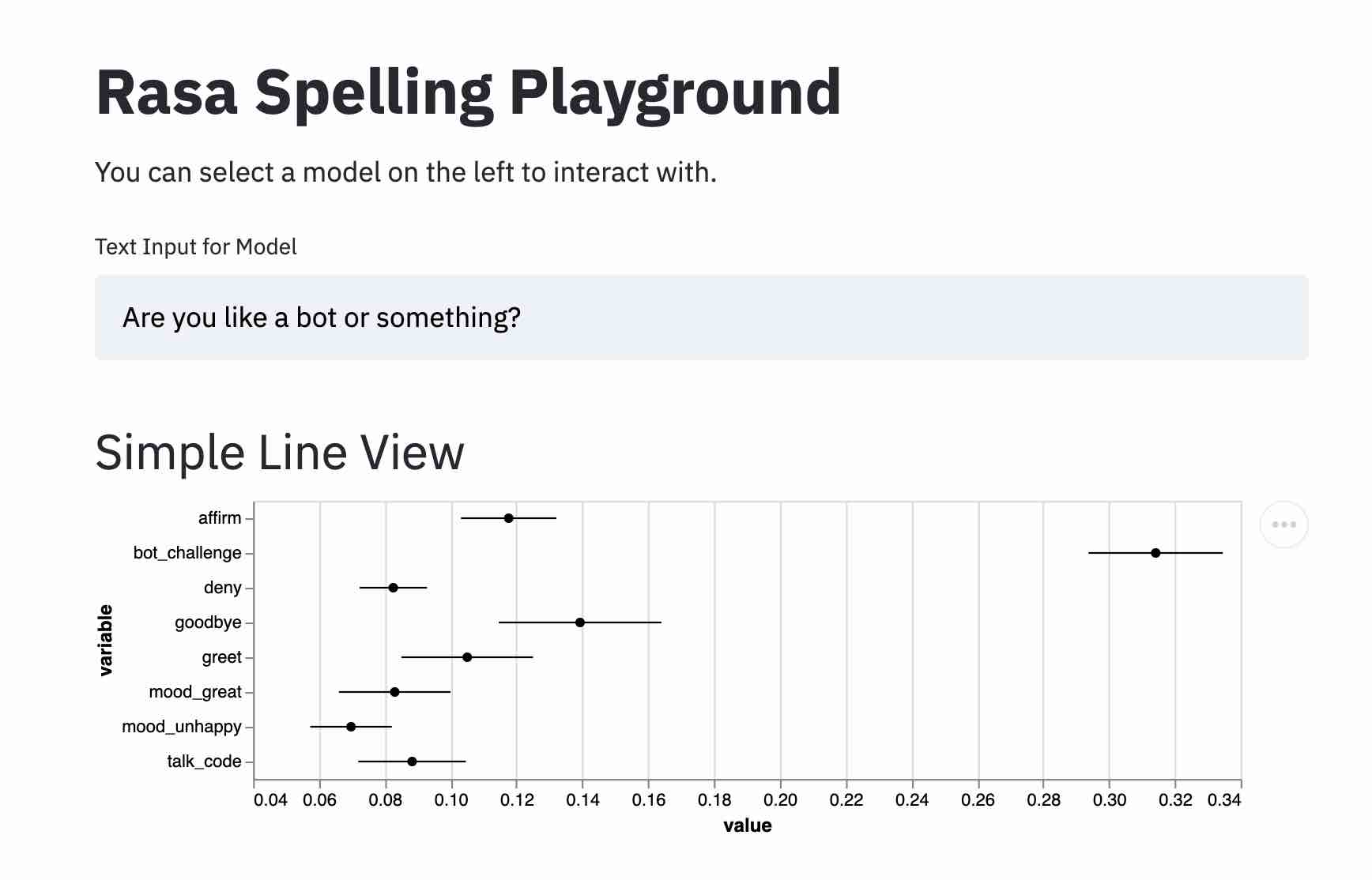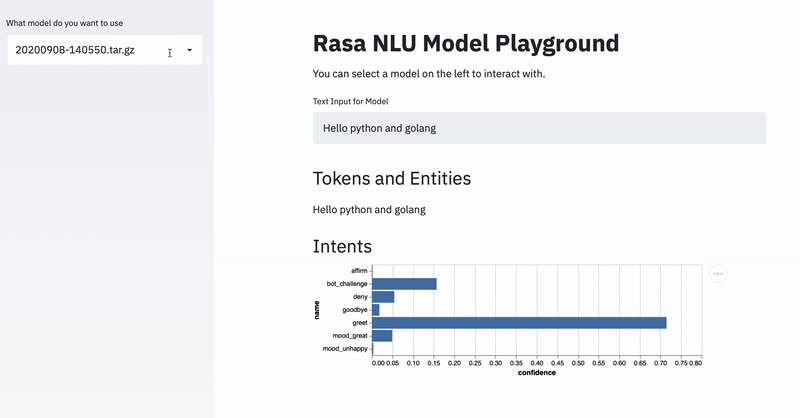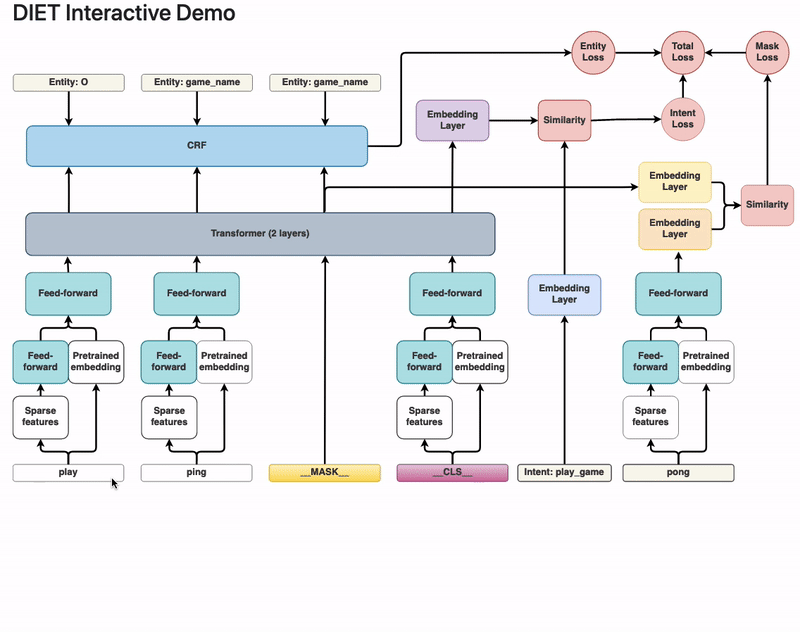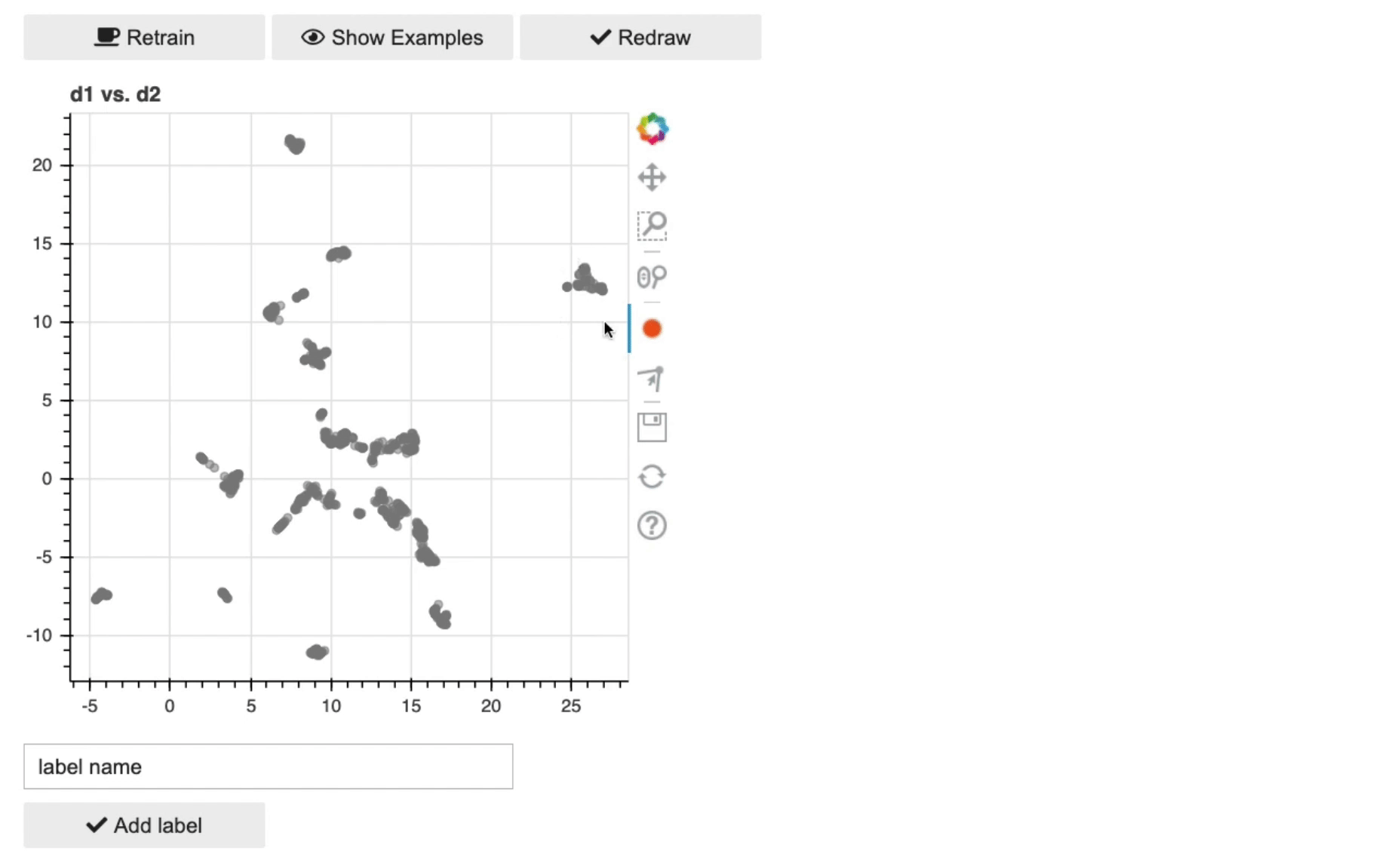RasaHQ / Rasalit
Projects that are alternatives of or similar to Rasalit

RasaLit
A collection of helpful viewers that help with understand Rasa NLU components. Some of these views are made using streamlit, hence the wink in the name.
Feedback is welcome.
Installation
You can install via pip by linking to this github repository.
python -m pip install git+https://github.com/RasaHQ/rasalit
Compatibility
The focus is to support the most recent version of Rasa. We do tag a release every time that we upgrade though. That means you can find compatible versions of rasalit for Rasa 1.10 here.
Usage
You can directly access the command line app.
> python -m rasalit --help
Usage: rasalit [OPTIONS] COMMAND [ARGS]...
Helper Views for Rasa NLU
Options:
--help Show this message and exit.
Commands:
diet-explorer Allows you to explore the DIET settings.
live-nlu Select a trained Rasa model and interact with it.
nlu-cluster Cluster a text file to look for clusters of intents.
overview Gives an overview of all `rasa train nlu` results.
spelling Check the effect of spelling on NLU predictions.
version Prints the current version of rasalit.
Features
The app contains a collection of viewers that each specialize in a seperate task.
nlu-cluster
This command allows you to cluster similar utterances in a text file.
Note that this app has some extra dependencies. You can install them via;
python -m pip install "whatlies[umap]"
Example Usage:
python -m rasalit nlu-cluster --port 8501
This will start a server locally. Internally it is using the whatlies package to handle the embeddings. This means that while the demo is only in English, you can extend the code to work for Non-English scenarios too! For more details, as well as a labelling tool, check out the notebook found here.
overview
This command shows an summary of the intent/entity scores from a rasa train nlu run.
Example Usage:
> python -m rasalit overview --folder gridresults --port 8501
This will start a server locally on port that will displace an interactive dashboard of all your NLU gridsearch data.
To fully benefit from this feature you'll need to run some models first. You can run cross validation of models in Rasa via the command line:
rasa test nlu --config configs/config-light.yml \
--cross-validation --runs 1 --folds 2 \
--out gridresults/config-light
rasa test nlu --config configs/config-heavy.yml \
--cross-validation --runs 1 --folds 2 \
--out gridresults/config-heavy
Then Rasa, in this case, will save the results in gridresults/config-light and
gridresults/config-heavy respectively.
To get an overview of all the results in subfolders of gridresults,
you can run the rasalit overview --folder gridresults command from the same
folder where you ran the rasa test command. You'll get some simple charts
that summarise the intent/entity performance.
spelling
This command let's you predict text with augmented spelling errors to check for robustness.
> python -m rasalit spelling --help
> python -m rasalit spelling --port 8501
This will start a server locally on port 8501 that will displace an interactive playground for your trained Rasa NLU model. You can see the confidence levels change as you allow for more or less spelling errors.
It's assumed that you run this command from the root of your Rasa project but you can also make it point to other projects via the command line settings.
live-nlu
This command gives you an interactive gui that lets you see the output of a trained modelling pipeline.
Example Usage:
> python -m rasalit live-nlu --help
> python -m rasalit live-nlu --port 8501
This will start a server locally on port 8501 that will displace an interactive playground for your trained Rasa NLU model. You can see the confidence levels as well as the detected entities. We also show some shapes of internal featurization steps.
It's assumed that you run this command from the root of your Rasa project but you can also make it point to other projects via the command line settings.
Attention Charts
If you're using the DIETClassifier you'll be able to also use this app to debug
the internals. The app also allows you to inspect all the pipeline settings as well
as the internal attention mechanism.
diet-explorer
This command gives you an interactive visualisation of DIET that allows you to see the available hyperparameters from all the layers in the algorithm.
Example Usage:
> rasalit diet-explorer --port 8501
This will start a server locally on port 8501 that will display an interactive visualisation of the DIET architecture.
Notebooks
This project also hosts a few jupyter notebooks that contain interactive tools.
Bulk Labelling
The bulk labelling demo found in this video and this video can be found here.
This notebook allows you to use embeddings and a drawing tool to do some bulk-labelling.
Contribute
There are many ways you can contribute to this project.
- You can suggest new features.
- You can help review new features.
- You can submit new components.
- You can let us know if there are bugs.
- You can let us know if the components in this library help you.
Feel free to start the discussion by opening an issue on this repository. Before submitting code to the repository it would help if you first create an issue so that we can disucss the changes you would like to contribute. You can ping the maintainer (Github alias: koaning) both in the issues here as well as on the Rasa forum if you have any questions.

